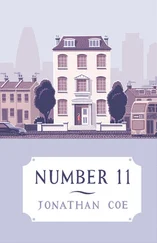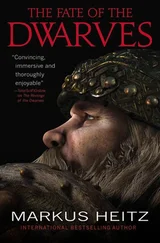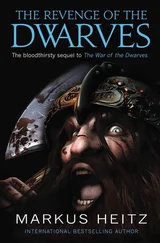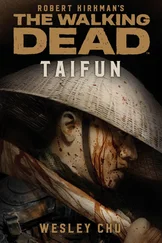‘Hello, Tina, my sweetest darling. Yes, it is Pedro, Big Boy, your little prickly cactus, and I was hoping to catch you before you went to work. Never mind. I was going to send you a million flowers to apologize for not seeing you again last night, but why don’t I just come round tonight instead for a bit of a bath, and maybe something else, if you get what I’m drifting at. I know I can rely on you baby, to keep a light burning in your window. See you later, honeychops.’
The machine clicked off.
I scraped the rest of the casserole into the pedal bin. It was time for bed.
*
The estate I lived on was called the Herbert Estate. It was built in the 1930s, and I’m told there were even some of the original tenants there — people who’d been living on the estate for more than fifty years. Me, I’d been there about fifteen months and I couldn’t wait to get shot of the place. It wasn’t that I disliked my neighbours, it was just that I didn’t feel I had much in common with them. The standard uniform for men involved tattoos on the chest and forearms, and preferably a couple of Alsatians or Rottweilers on the end of a leash. The women just carried babies around with them all day — pushing them along in prams, or pulling them along in harnesses, or just walking to the shops with a whole crowd of little kids running around at their heels, shouting and screaming and making trouble. To keep these kids quiet their mothers would buy them sweets and crisps and chocolate and cans of sweet Coke and lemonade, which was why their complexions were so pale and their lips so red and their teeth already blackening. The women on the estate always seemed to be pregnant. There were six kids at least in the flat underneath ours and another one was on its way (by accident, as I was able to gather one night from a particularly loud argument which went on in the room beneath my bedroom). A lot of the men were out of work, and couldn’t find much to do all day besides wandering around and visiting the pubs and the betting shop, so it’s hard to see how these families made ends meet.
It wasn’t an especially violent estate, it was even held together by a downbeat sort of community spirit, a shared sense that life was an uphill struggle and that as long as we were all living there, there was nothing to get too cheerful about. Every so often at night police cars would come tearing up with their lights flashing and their sirens wailing and there would be some kind of disturbance, but we would never find out what it was about. We had three locks on our door and bars on our windows so we never got broken into. Just up the road there was the Salvation Army hostel, and we used to get the drop-outs and winos walking up and down all day, going up to the park if the weather was good, or otherwise just dropping into the off-licence for their cider or their Special Brew, and then sitting down and drinking it out on the street.
It was a far cry from what I expected when I moved down to London. Then again, I don’t know what I did expect. I’d had a nicely cosseted middle-class upbringing on the outskirts of Sheffield, and I spent the first twenty years of my life there without knowing enough about the world to realize how lucky I was. We were a close-knit family, the three of us, and I didn’t make many friends: there was really only Derek, who lived next door, and Stacey, who I nearly married.
Derek was a couple of years older than me, but this had never seemed to make much difference, even during that teenage period when two years can seem like the most uncrossable of generation gaps. I suppose what kept us together was that we were both obsessed with music (although in different ways). My obsession tended to be practical: I was interested in listening to records purely for what I could learn from them and then apply to my own playing. (I was playing guitar at the time; I didn’t move on to piano until I was nearly seventeen.) But Derek aspired to nothing more than consumption. He was avaricious about new trends in music, and would devour and digest them before the rest of us knew what was happening. It began with punk, which excited something in him even at the age of fourteen. At the time I was still listening to stupid bands who specialized in classical rip-offs and concept albums with great big gatefold sleeves covered with pictures straight out of Tolkien; but he soon talked me out of that. I used to go up to his bedroom and he’d play me the latest singles (I never used to buy singles) on his ancient Dansette record-player. He’d be buying five or six a week, maybe more. This was in the days when twelve-inch singles and picture discs were big news. Then there was New Romanticism (so-called), then there was a wilderness period when he went around looking gloomy and saying that there was nothing interesting happening, and then there was Hip-Hop and House to keep him happy. Meanwhile I had started playing in a local band and he would come dutifully along to our gigs, never saying much about the music, from which I guessed that he didn’t like it particularly. Sometimes he would say things like we didn’t have enough presence, and he’d criticize our haircuts. I suppose by then our friendship had developed in different ways and we didn’t talk about music so often. I’ve always thought that the committed listener and the committed performer don’t, in the long run, have all that much in common.
It was good that Derek used to come to our gigs, though, because he was company for Stacey. The two of them would turn up wherever we were playing — usually it was nothing more glamorous than a Saturday-evening support slot at the Leadmill — and stand in the front row where I could see them, and then the three of us would go along for a drink somewhere afterwards. Stacey was terrific. I still think this, even now.
At first when I left school I didn’t want to go to college, I wanted to go straight into music, and the only job I could find which made use of my chemistry ‘A’ level was making up prescriptions behind the counter at Boots. That was where I met Stacey. She worked on cosmetics.
Why am I telling you all this anyway? I don’t know how I got started on this subject. Everything has its place, and I’m supposed to be describing the Herbert Estate. And the reason I was doing that is because the next morning, at eight o’clock, I came out of the flat and started to walk through it on my way to work.
Progress was slow, to say the least, because I had my synth with me, and the combined weight of this keyboard and its carrying case was just about as much as my arms could bear. We would be rehearsing straight after work that night and I wouldn’t have time to come back to the flat, so I had no option but to carry this monstrous thing with me all the way to the shop.
Out on the estate the first thing I saw was a bunch of kids, who should all have been on their way to school, throwing bricks at a bicycle. They all had skinhead haircuts and stonewashed jeans, and they jeered and shouted obscenities at me as I struggled past with my keyboard.
‘What a wimp!’ they were chanting.
I couldn’t really disagree with them: they all looked about ten times stronger than me. On this estate I had once seen two eight-year-old children lift up a concrete bollard and hurl it through the window of a Ford Fiesta.
As I staggered past the grocer’s and the chip shop I realized that there was no way I could carry the keyboard for more than another ten yards. I had been walking for five minutes and I had another mile and a quarter to go to the tube station. My face was purple, I was sweating profusely and I was gasping for breath. I dropped the keyboard on the ground, sat down on it and buried my head in my hands. After a while I tried to pick it up again. I couldn’t. It was as if it was glued to the pavement. I sat down again and rested. One of my neighbours, several months pregnant, pushing a pram and with a small child in a harness on her back, came past and offered to carry it for me for a while. I politely refused. There was a call-box nearby: I knew I was going to have to phone for a mini-cab.
Читать дальше












